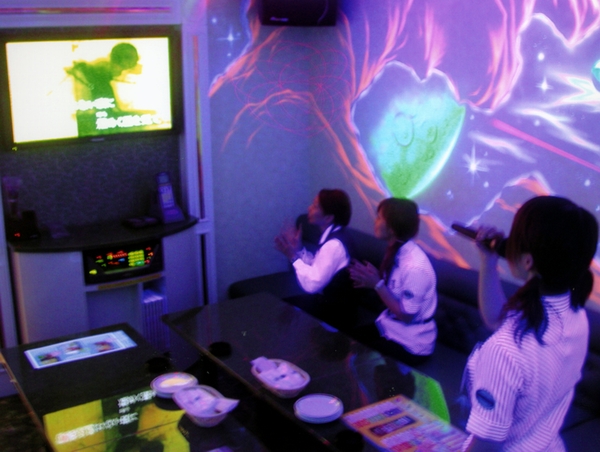For instance, when I was an infant, my father used to play music to us: Bach, Kathleen Ferrier, Carols, Kreisler, Menuhin, Alfred Cortot, Artur Schnabel. I liked all these, and so there was a foundation for learning and liking more classics and light classics. Then my aunt got into the act, and I discovered Mozart, Beethoven, Wagner, Mendelssohn, Brahms, and the Strauss waltzes.
I began to pick up a liking for pop music from my friends, and sixties pop, The Beatles, The Rolling Stones, Herman's Hermits, The Beach Boys, and sundry other groups and individual artists were pretty painlessly incorporated into my list of likes.
Similarly with literature: children's books, then The Saint, James Bond, then Jane Austen, Baroness Orczy (Scarlet Pimpernel!), Dickens, Reader's Digest Condensed Books ... P.G. Wodehouse, C.P. Snow, James Thurber, Louisa May Alcott, Laura Ingalls Wilder, Alexandre Dumas, Robert Stevenson, Walter Scott, etc.
It was during one Summer that I picked up a Terry Pratchett book, and I was hooked. I mean, I do occasionally read books by random authors, but it is very occasionally.
So now, I imagine, if we pick someone at random, they (i) probably already have types of music that they like. (Bear in mind that the Internet, and YouTube, and TV all conspire to keep throwing new songs and music in your face. These are all selected by how much money is being spent on them, rather than how likely the person is to actually take a liking to them. On the other hand, commercial musicians and artists are furiously trying to come up with something that most people will like, to maximize their chances of selling it.) So, if you have an opportunity to check out some new sort of music, is it worth the effort?
The same goes for books. There are books you like, and authors you like. Is it better to re-read one of your favorites, or go to the local library and browse the shelves for something new?
I should have disclosed, right at the outset, that I really have no words of wisdom for this particular puzzle. Music, books, movies, food: the question is, should we try something new?
If you're young, I say, absolutely, you should. You've got to get stocked up with experiences and delights to last you for years, and the same old ones are not likely to satisfy you forever. I still enjoy watching DVDs of movies from when I was young: The Ten Commandments, The Sound of Music, My Fair Lady, The Court Jester, etc, etc; these are all good fun whenever I watch them (especially with any friends who might have enjoyed the same movies, or who think a movie I like is a good risk!) So the oldies might still be goodies when you get to be a hundred, but ... take risks. An evening wasted is, after all, only an evening.
If you're a hundred already, you know, I'd say: stay with what works. There really is no harm going off to see Avatar with a nephew or a granddaughter, just to see what turns them on, but you should be able to take it or leave it. With music, you might get a bigger kick out of finding less known or rare pieces by your favorite musician or composer, than exploring completely new composers or musicians. If you're one of these high-energy, youthful grandparents, you could keep studying everything new that comes along: it keeps you young, gets you tired, and you get a good night's sleep that way.
If you're in-between, this is a big decision. This is the busiest time of your life; can you afford to be taking time out to scope out a new line of art or entertainment? A new author, a new recipe, a new kind of music, a new movie? Once you get into the swing of this, you can figure out exactly how much time you want to give it. You also become more adept at finding friends who can give you an idea whether the project is worth the effort. (This is where friends are useful.)
If your kids recommend something, I would do it. (Unless the kid is a complete idiot, and has terrible taste, in which case you ought to do it as penance.) Kids are usually sharp about what their parents would like; if they're out in left field on these things, something has to be done. I mean, is it possible to bring up a child, and that child have no clue about the person you are?
To cut a long story short, it's more a matter of what kind of things to pursue than whether to pursue them. Sometimes, if there is a team effort, it is a little more painless; this is especially true of recipes and movies. Even watching a total loser of a movie with a good bunch of friends can be entertaining.
Well, gotta go. Talk to you later,
Arch







